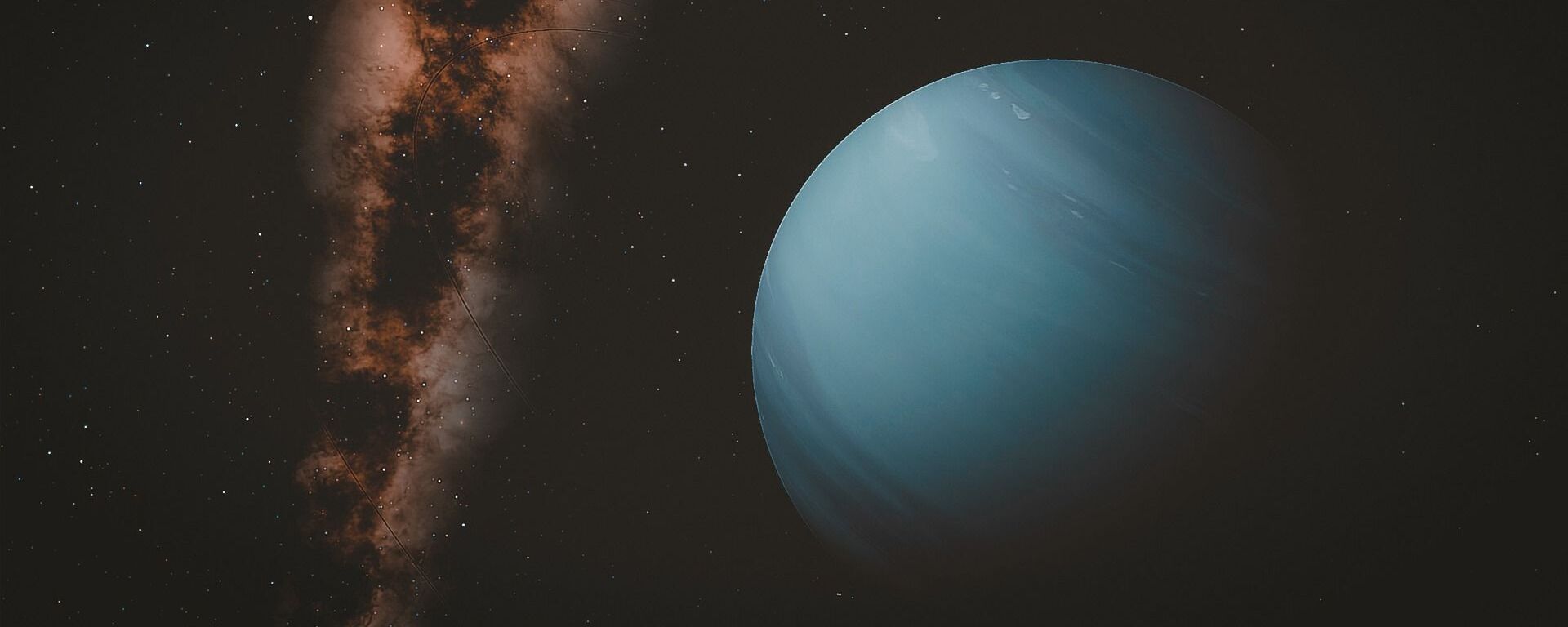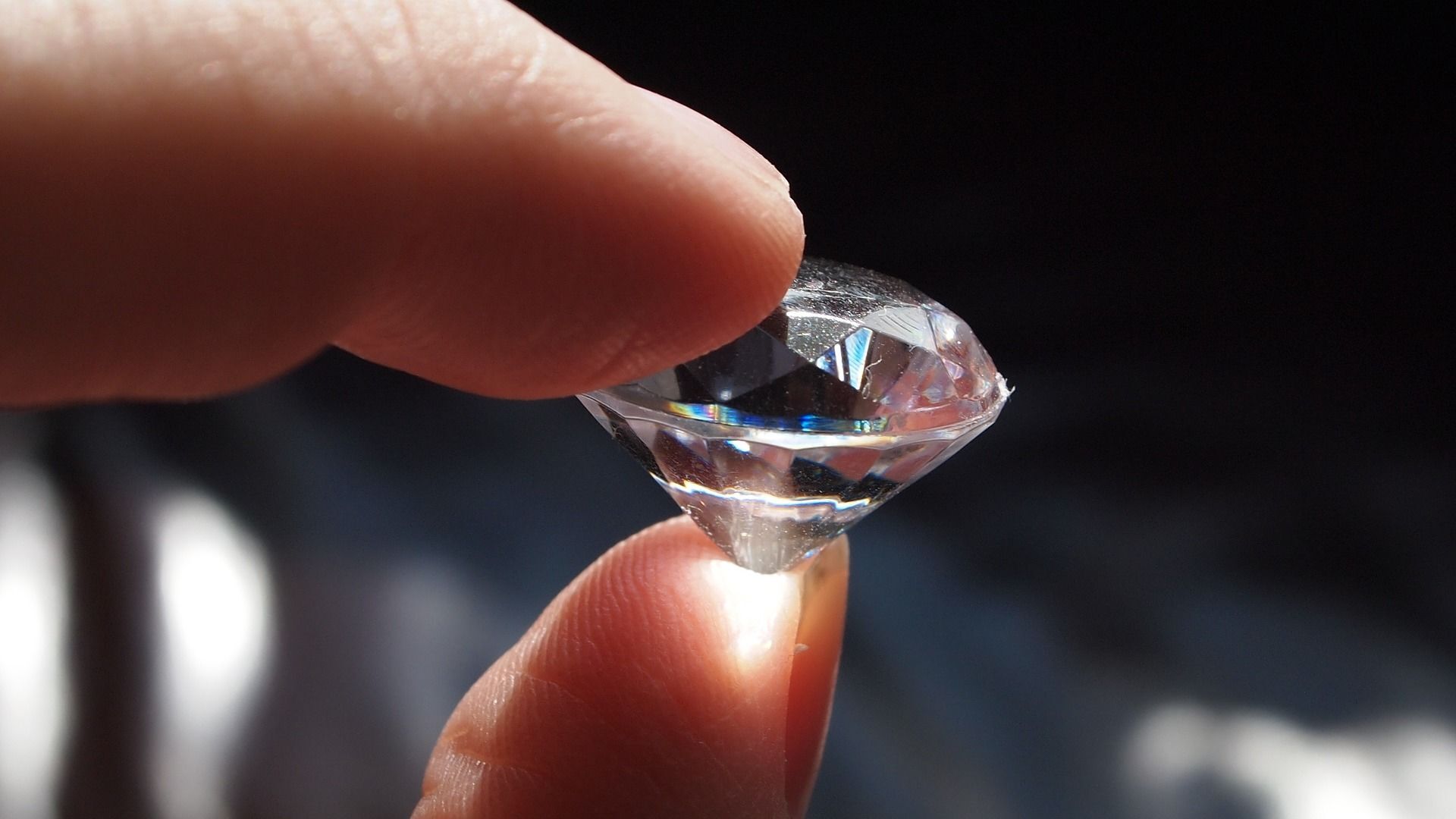https://sputnikglobe.com/20220917/secrets-of-super-hard-diamonds-from-space-cracked-by-scientists--1100907447.html
Secrets of Super-Hard 'Diamonds From Space' Cracked by Scientists
Secrets of Super-Hard 'Diamonds From Space' Cracked by Scientists
Sputnik International
The researcher who led the study confirmed that while the type of diamond they researched is harder than common ones, it is “yet to be proven by measurement”... 17.09.2022, Sputnik International
2022-09-17T16:45+0000
2022-09-17T16:45+0000
2023-04-12T16:58+0000
science & tech
diamonds
study
space
https://cdn1.img.sputnikglobe.com/img/07e4/0c/07/1081381417_0:432:1920:1512_1920x0_80_0_0_e0a75ba1d79fbe091ac6a7596c92cd7f.jpg
A team of scientists claim they have discovered the largest crystals of a rare type of diamond found in meteorites, CNET reports.The diamond type in question, known as lonsdaleite, has a hexagonal lattice – as compared to the cubical lattice of an ordinary diamond – and was discovered in a meteorite that likely came from a dwarf planet that was struck by an asteroid sometime in the distant past.While lonsdaleite has so far been found only in a type of meteorite called ureilite, it has also been synthesized in laboratory conditions by compressing and heating graphite.Dougal McCulloch, director of the RMIT Microscopy and Microanalysis Facility in Australia who participated in the research, said in a statement that the work “proves categorically that lonsdaleite exists in nature."While lonsdaleite is harder than common diamonds, it is unclear precisely how much harder that material is, study lead Andy Tomkins, a geology professor from Monash University, told the media outlet.The researchers also made some suggestions regarding possible applications of lonsdaleite."We think that lonsdaleite could be used to make tiny, ultra-hard machine parts if we can develop an industrial process that promotes replacement of pre-shaped graphite parts by lonsdaleite," Tomkins said.
https://sputnikglobe.com/20220904/ice-planets-may-be-experiencing-more-diamond-rain-than-previously-thought-1100348152.html
Sputnik International
feedback@sputniknews.com
+74956456601
MIA „Rossiya Segodnya“
2022
News
en_EN
Sputnik International
feedback@sputniknews.com
+74956456601
MIA „Rossiya Segodnya“
Sputnik International
feedback@sputniknews.com
+74956456601
MIA „Rossiya Segodnya“
science & tech, diamonds, study, space
science & tech, diamonds, study, space
Secrets of Super-Hard 'Diamonds From Space' Cracked by Scientists
16:45 GMT 17.09.2022 (Updated: 16:58 GMT 12.04.2023) The researcher who led the study confirmed that while the type of diamond they researched is harder than common ones, it is “yet to be proven by measurement” exactly how much harder it actually is.
A team of scientists claim they have discovered the largest crystals of a rare type of diamond found in meteorites, CNET reports.
The diamond type in question, known as lonsdaleite, has a hexagonal lattice – as compared to the cubical lattice of an ordinary diamond – and was discovered in a meteorite that likely came from a dwarf planet that was struck by an asteroid sometime in the distant past.
While lonsdaleite has so far been found only in a type of meteorite called ureilite, it has also been synthesized in laboratory conditions by compressing and heating graphite.
Dougal McCulloch, director of the RMIT Microscopy and Microanalysis Facility in Australia who participated in the research, said in a statement that the work “proves categorically that lonsdaleite exists in nature."

4 September 2022, 03:49 GMT
While lonsdaleite is harder than common diamonds, it is unclear precisely how much harder that material is, study lead Andy Tomkins, a geology professor from Monash University, told the media outlet.
"It's been estimated mathematically to be 58 percent harder than diamond, but that is yet to be proven by measurement," he remarked.
The researchers also made some suggestions regarding possible applications of lonsdaleite.
"We think that lonsdaleite could be used to make tiny, ultra-hard machine parts if we can develop an industrial process that promotes replacement of pre-shaped graphite parts by lonsdaleite," Tomkins said.


